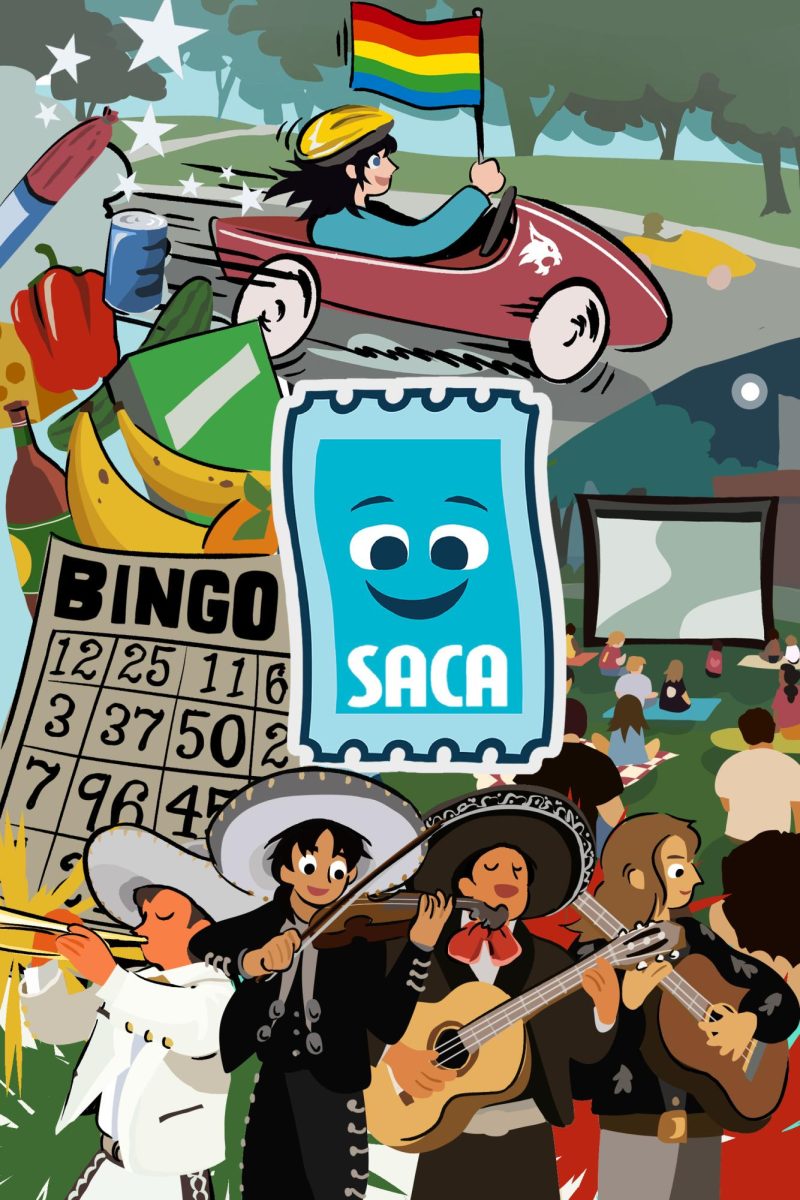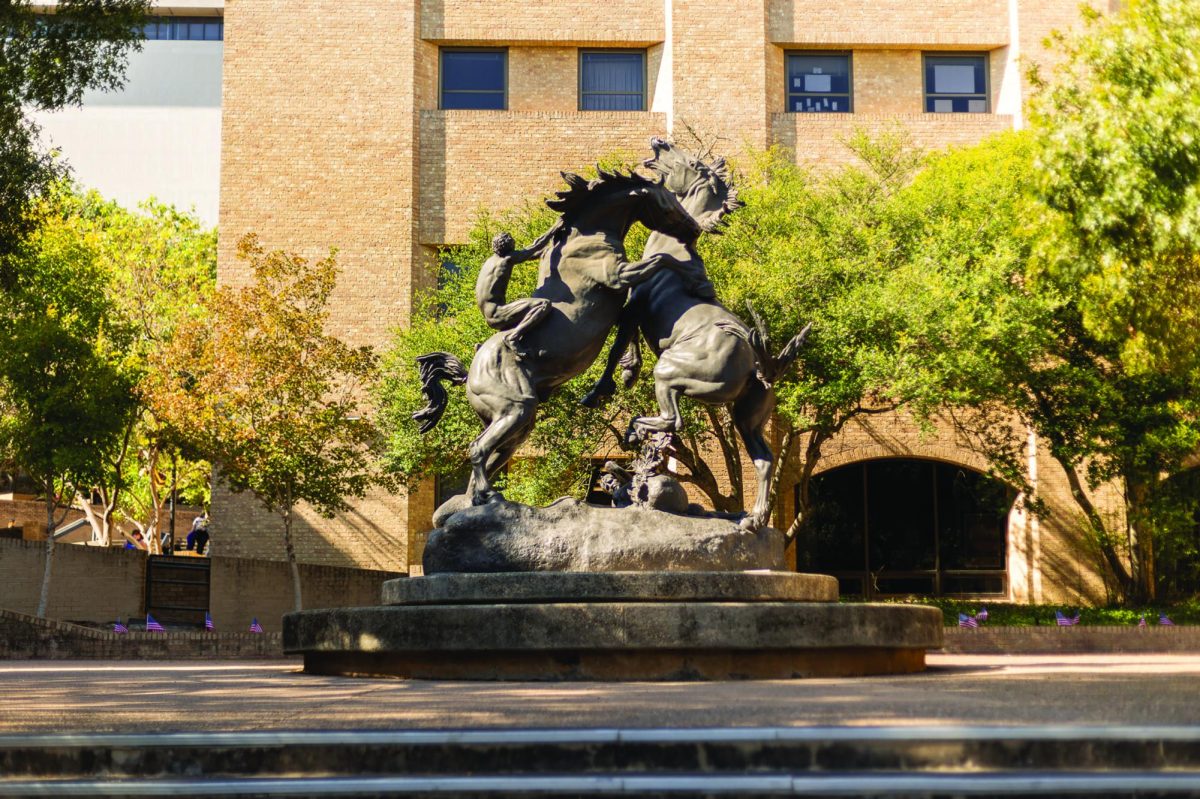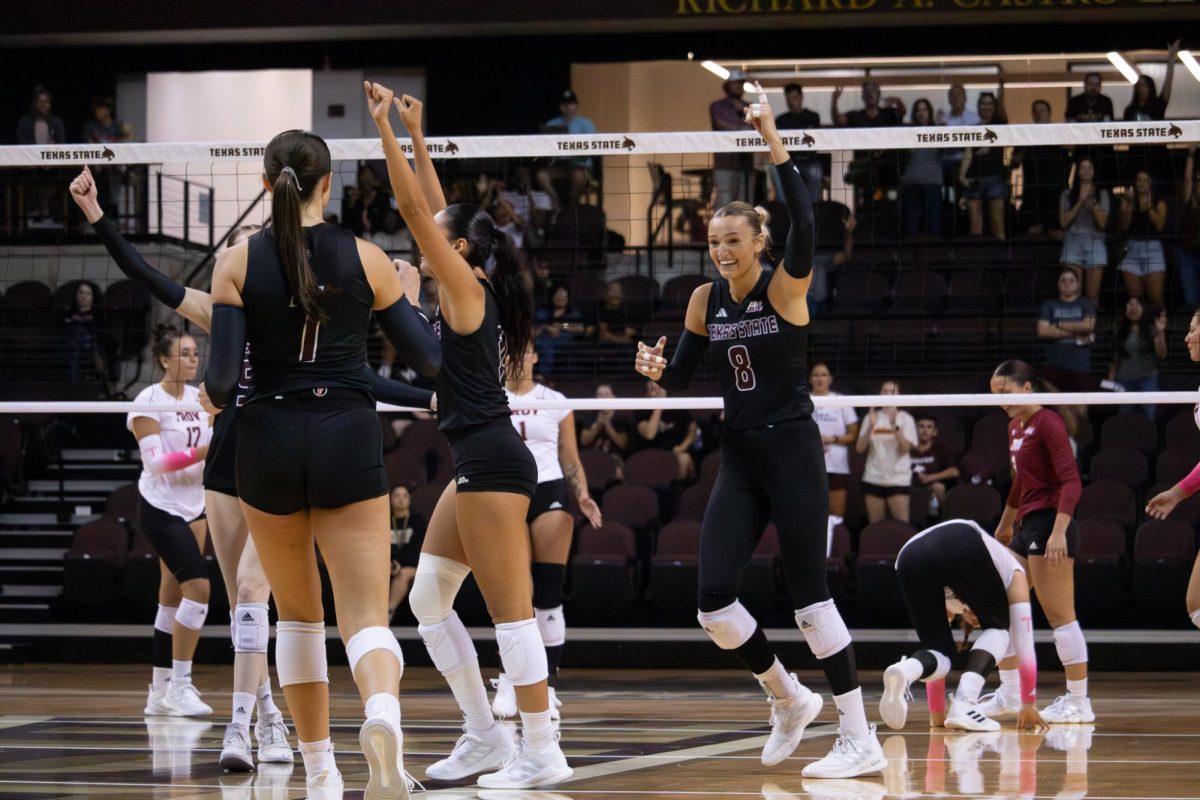At Texas State, chartered organizations, which are organizations that are funded through student fees and run by student workers with a common goal of raising student involvement, play a crucial role in the vibrant campus environment.
Examples of these organizations are Bobcat Build, one of the largest community service projects in the state, the Black Student Alliance, which serves as an ally to underrepresented voices and the Student Association for Campus Activities (SACA). Students often have to pay fees to join these groups, which has raised discussions about their importance.
Chartered organizations like SACA are crucial for shaping the Texas State experience, especially for first-year students. They serve as guides, helping students navigate campus life and foster a sense of belonging beyond individual backgrounds.
Hope Smith, management sophomore and member of SACA, said the organization helps connect students across different majors.
“I met people in various majors and discovered common interests with those in the business college through the club,” Smith said.
Undergraduate tuition and fees at Texas State are approximately $29,400,encompassing 15 credit hours and on-campus living. A significant portion, $12,220, is allocated to tuition and fees. Within these fees, support for chartered organizations is evident, typically ranging from $60 to $100.
When juxtaposed with other fees, like the recreation fee at $94, the relatively modest allocation to chartered organizations becomes a focal point of discussion. While some students may question the mandatory fees for these organizations, understanding their budgetary share within the broader context of attendance costs underscores their significance in shaping the campus experience and fostering a sense of community among students.
Some students may question the mandatory fees for organizations like SACA, dismissing them as unnecessary. Those skeptical of chartered organizations may not notice their broader contribution to university culture, providing valuable opportunities for shared experiences and connections. These experiences can unite people, allow them to explore shared interests and engage in unexpected adventures.
“[SACA] provides students, especially freshmen, with a sense of belonging,” Gabby Gaubet, SACA Event Coordinator and psychology junior, said. “During my Halloween event, many attendees mentioned they had no plans, but because of the event, they were able to have fun even on a weekday.”
Beyond routine events, chartered organizations like SACA distinguish themselves by adding an extra layer to the tapestry of community building. Unconventional experiences, such as petting zoos and collaborative paint-by-number events, showcase SACA’s commitment to fostering unique moments that linger in the memory of the Texas State community.
Organizations like SACA are integral to Texas State’s campus life. Despite debates about mandatory fees, these chartered organizations, exemplified by SACA’s role in connecting students and fostering a sense of belonging, significantly contribute to the university culture.
Their impact extends beyond event planning, providing valuable shared experiences and connections that enhance the overall Texas State experience, particularly for first-year students. It becomes evident that these mandatory fees are utilized to make a brighter mark on Texas State’s students.
–Aili Ortega is a marketing senior
The University Star welcomes Letters to the Editor from its readers. All submissions are reviewed and considered by the Editor in Chief and Opinions Editor for publication. Not all letters are guaranteed for publication




















